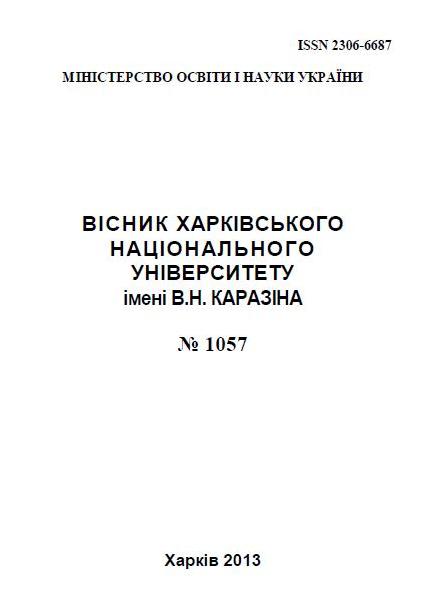МІФОЛОГІЧНА КУЛЬТУРА ЕПОХИ РОМАНТИЗМУ
Анотація
Аналізуються романтичні концепції міфу, що сформувались в Німеччині в кінці XVIII – на початку
XIX ст. Міфологія розглядається крізь призму творчості провідних авторів-міфологів, представників
романтичних шкіл тогочасності.
Бурковский М. В. Мифологическая культура эпохи романтизма. Анализируются романти-
ческие концепции мифа, сложившиеся в Германии в конце XVIII – начале XIX вв. Мифология
рассматривается сквозь призму творчества ведущих авторов-мифологов, представителей роман-
тических школ того времени.
Ключевые слова: немецкий романтизм, культура, миф, мифология, символ.
M.V.Burkovsky. Mythological culture of the romantic era. Romantic conceptions of myth, which has
developed in Germany in the late XVIIIth – early XIXth centuries are analyzed. The mythology is viewed through
the prism of the creativity of leading authors-mythologists, representatives of the romantic schools of the time.
Thus, since the dawn of German Romanticism, an artistic, literary, and intellectual movement that originated in
Europe toward the end of the XVIIIth century, artists and intellectuals in Germany have maintained an keeping
high interest in the gods and myths of antiquity while calling for a “new mythology” suitable to the modern age.
In this article the author examines the factors that gave rise to such distinct and profound mythological
concernment. In doing so, he examines the major German romantic movement centers of those years. One of
these groups is “Jena Romanticism”, which was a first phase of Romanticism. Brothers A. W. and F. von
Schlegel, Novalis and L. Tieck and certainly F. W. J. von Schelling, the “philosophical maitre” of the
association, were members of this group. Mythology, as they believed, – is nothing but inherently common to all
nations, and specific myths – are not the result of deliberate and conscious effort of the individual, but the result
of unconsciously, spontaneously, involuntary activities of many people. Gradually mythological studies of
Romantics shift from philosophical to specific scientific study of mythology. This romantic writers (which worked
in another center of German Romanticism, Heidelberg) has employed specific, primarily German national
mythmaking. J. Grimm was the author of the fundamental two-volume study “German Mythology”, which until
now is considered as a classical work of comparative mythology. Thus, author demonstrates, that the era of
Romanticism became as a kind of foundation stone in the historical development of myth philosophy, which is
rightly considered as a “core” of cultural and intellectual life in Germany in the late XVIIIth – early XIXth
centuries. The fascination with philosophical (speculative) aspects of myth belongs to Jena romantic school,
while members of Heidelberg group examined myth by means of specific scientific methods, primarily
comparative-historical. In general, this article uncovers, that the merit of the German Romantics to the science of
mythology is difficult to overestimate.
Keywords: German Romanticism, culture, myth, mythology, symbol.




